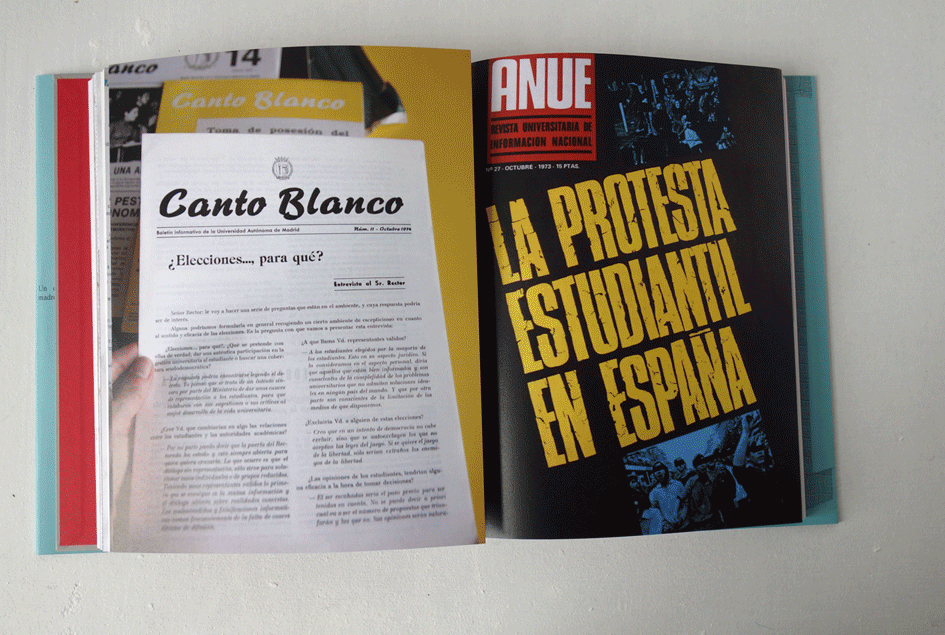Breathing into Yesterday's Futures: a Pause to Be Grateful.
With the special contribution of Olivia Plender´s drawings.
Research collaboration with Sebastian Dahlqvist
The book is printed in 3 different techniques: Risograph (5 inks), offset ( CMYK) and letterpress
96 pages
25 x 19,5 cm
2023
This publication presents a series of experimental narrations between drawings, letters and archival material to draw around the potential of art for solidarity and collective organization. The book is a personal storytelling that melts parts of my childhood, the civil war in Spain, and looking at artists in Sweden that were showing solidarity and support to the antifascist movement. These artist-led movements tried also to bring dignity to the working conditions for the cultural workers in Sweden and I feel grateful for it.
" I appreciate the collective efforts of the past that allowed better working conditions within the arts today. I want to thank those who made the collective attempts to propose other political imaginaries within the field of art, to give a larger number of beings access to art. In this book I name only a few of them, active during the 1930s and 1940s in Sweden, when fascist hatred was a shadow on Spain and began its expansion throughout Europe."
The book acknowledges the work of Folkdekor, Vera Nilsson, Konsten åt Folket, Swedish Labour Movement’s Archive and Library, Realisterna, Arbetar Konstnärnernas Grupp, Konstnärnernas Fredskommitté among others.
The book was introduced through a performance in May at Moderna Musset Malmö, and the presentation encompassed several elements:
First, there was a discussion about the book's content with Asrin Haidari, which delved into its political themes and messages. Following that, Filippa Frej gave a lecture regarding the significant role of women in international frontline peace processes. This shed light on the invaluable contributions made by women, and the need of a new paradigm for a collective and feminist approach in promoting peace and resolution in global conflicts. Lastly, the performance with voice guiding and a sound spatial installation provided a space for expressions of gratitude. It was a guided experience, with a polyphonic arrangement of many voices conveying their appreciation. Additionally, during this performance, a woman wearing flamenco shoes walked through the room, imprinting gratitude with each step she took.
-
Contra Narratives, Exhibition-Making, Notions of Time, Publication
" I appreciate the collective efforts of the past that allowed better working conditions within the arts today. I want to thank those who made the collective attempts to propose other political imaginaries within the field of art, to give a larger number of beings access to art. In this book I name only a few of them, active during the 1930s and 1940s in Sweden, when fascist hatred was a shadow on Spain and began its expansion throughout Europe."
The book acknowledges the work of Folkdekor, Vera Nilsson, Konsten åt Folket, Swedish Labour Movement’s Archive and Library, Realisterna, Arbetar Konstnärnernas Grupp, Konstnärnernas Fredskommitté among others.
The book was introduced through a performance in May at Moderna Musset Malmö, and the presentation encompassed several elements:
First, there was a discussion about the book's content with Asrin Haidari, which delved into its political themes and messages. Following that, Filippa Frej gave a lecture regarding the significant role of women in international frontline peace processes. This shed light on the invaluable contributions made by women, and the need of a new paradigm for a collective and feminist approach in promoting peace and resolution in global conflicts. Lastly, the performance with voice guiding and a sound spatial installation provided a space for expressions of gratitude. It was a guided experience, with a polyphonic arrangement of many voices conveying their appreciation. Additionally, during this performance, a woman wearing flamenco shoes walked through the room, imprinting gratitude with each step she took.
-
Contra Narratives, Exhibition-Making, Notions of Time, Publication
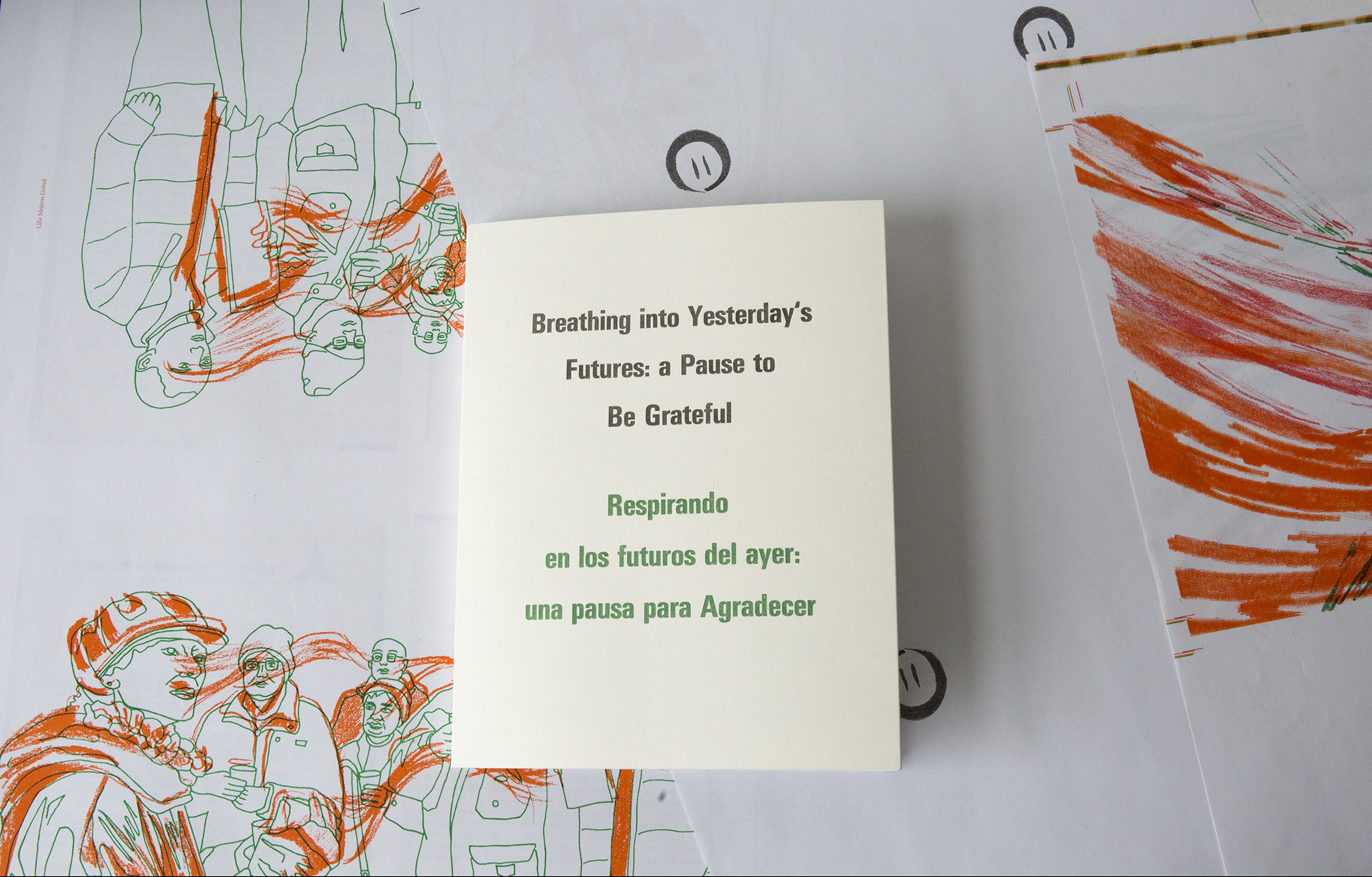
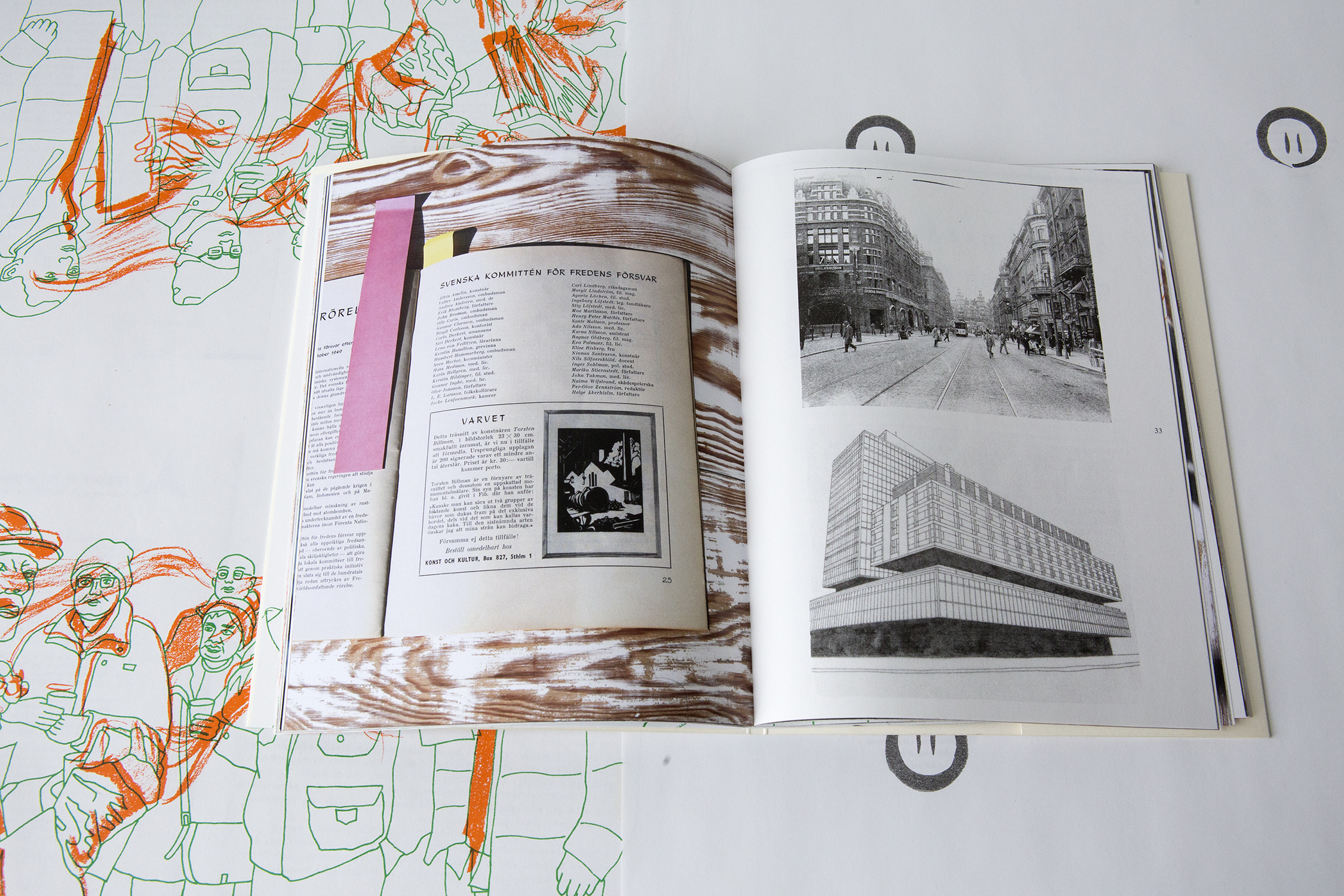
120 copies + 24 special edition
Printed thanks to Längsmanska Kulturfonden and Malmö University Risolab
A conversation in 60 pages
Helena Fernández-Cavada in Conversation with María Berríos.
Digital print.
Soft cover.
60 pages.
24 x 18 cm.
Print on demand
2019
The edited correspondence and related visual material is presented in a limited edition artist book publication, and the reading open the conversation on the possibility of Spain having a new time zone. One of reclamation after the political and emotional reality of time lost under the Franco dictatorship, one where the current relativity of precarious time in democracy is re-imagined. The discussion will address questions such as how our private lives are affected by political systems of the past and the present, and how we can escape the fascist structures which are emerging—given that within democracy and its institutions a patriarchal relationship between the state and its citizens is still present.
The book was presented as part of the exhibition The stolen hour
-
Publication, Contra narratives, Notions of time
The book was presented as part of the exhibition The stolen hour
-
Publication, Contra narratives, Notions of time



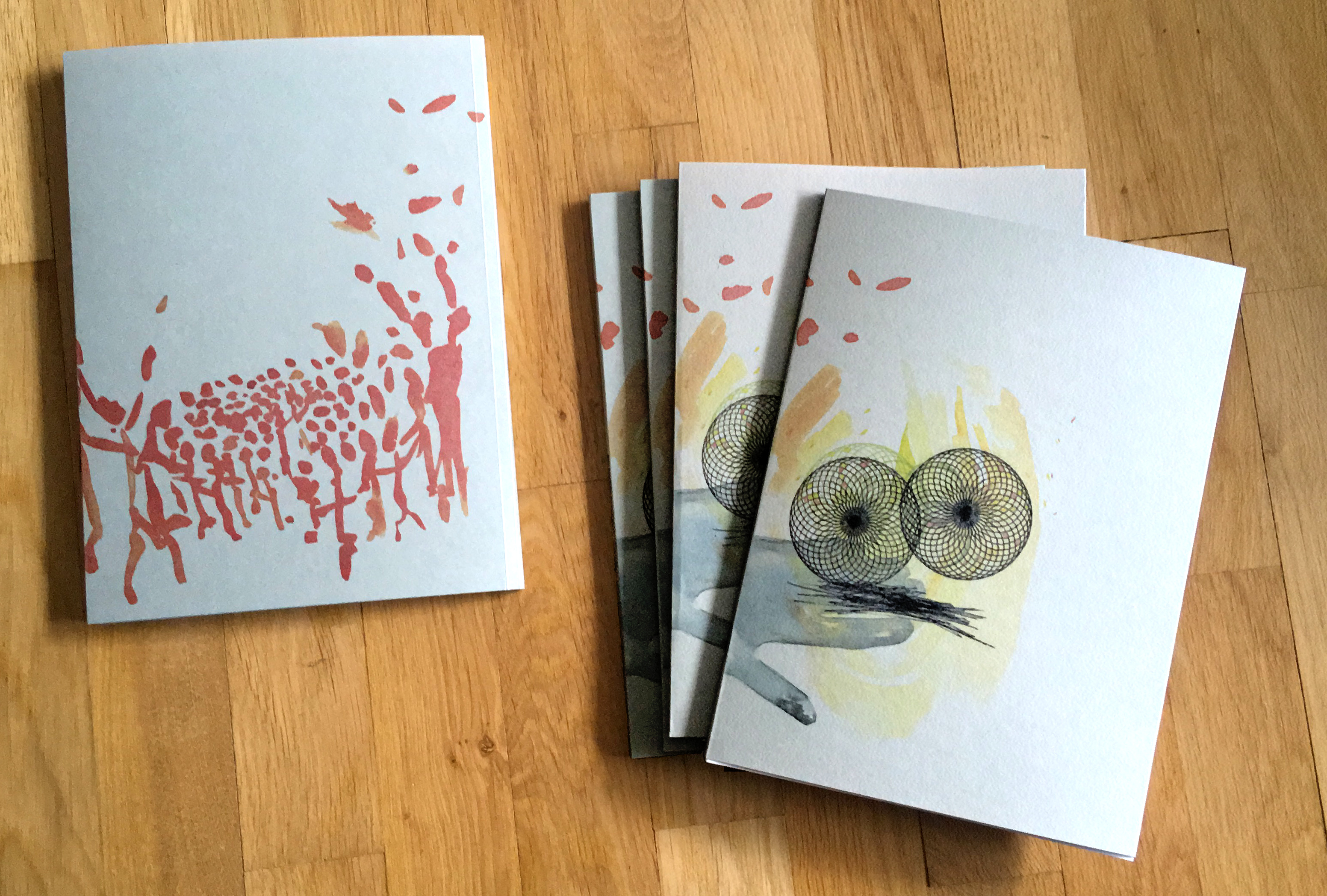
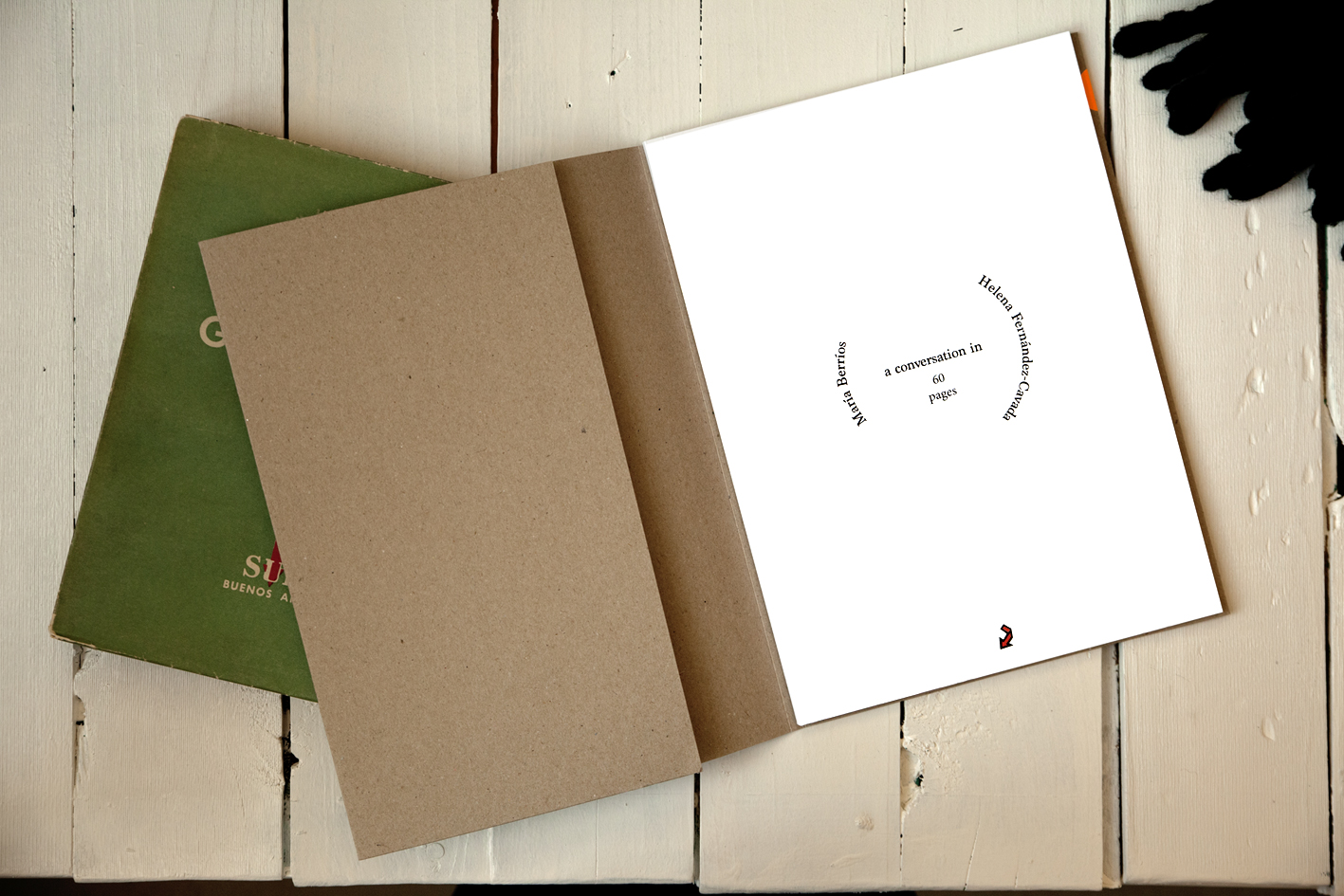
Ey you out there in the cold
Exhibition
2019
The exhibition explores our relation with interdependency. When the public arrived the show had been de de-installed, and they could reconstruct the exhibition by looking to the catalogue, the left overs and a box that contained all the drawings.
-
Contra Narratives, Exhibition-Making, Notions of Time, Publication
-
Contra Narratives, Exhibition-Making, Notions of Time, Publication
«What was forbidden in Spain during the dictatorship?»,
I ask my mother.
She answers:
«Living. And thinking».
These words are the starting point of an epistolary conversation brimming with confessions about our intimacy and daily life over different ages. After ten years of living abroad, this exchange is an attempt to grasp the various narratives that conditioned my upbringing, in a country where Catholic religion and Francoism were the official doctrine until a year before my birth. In this experimental correspondence we each use the language most familiar to us: I draw, she writes. Letters to my mother collects a total of nine letters whose strokes and marks draw unexpected relations.
-
Notions of time, Publication, Contranarratives
I ask my mother.
She answers:
«Living. And thinking».
These words are the starting point of an epistolary conversation brimming with confessions about our intimacy and daily life over different ages. After ten years of living abroad, this exchange is an attempt to grasp the various narratives that conditioned my upbringing, in a country where Catholic religion and Francoism were the official doctrine until a year before my birth. In this experimental correspondence we each use the language most familiar to us: I draw, she writes. Letters to my mother collects a total of nine letters whose strokes and marks draw unexpected relations.
-
Notions of time, Publication, Contranarratives







